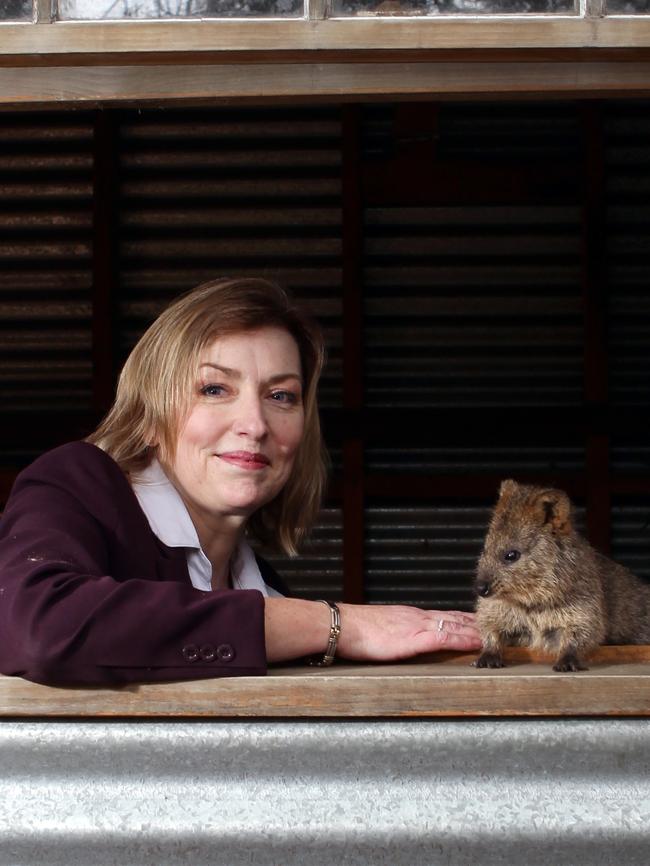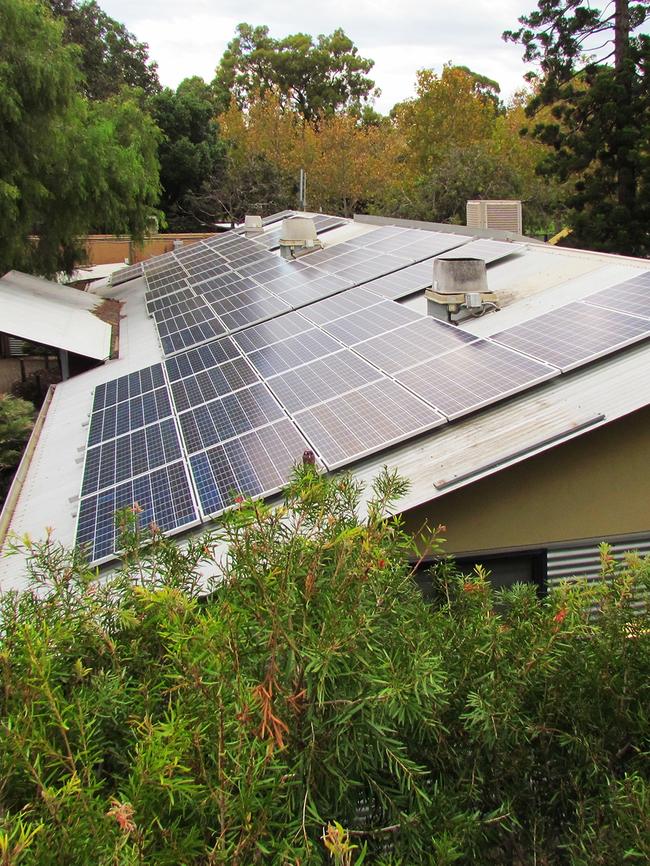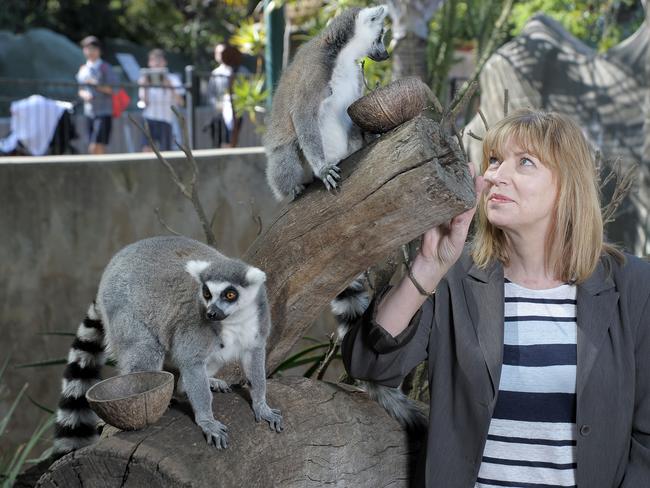Zoos SA to buy back-up power generators to protect animals, faces rising electricity bills in wake of blackouts
EXCLUSIVE: Zoos SA will spend about $50,000 on backup power to protect animals and visitors from future serious blackouts, and faces a surge in electricity bills that may push up admission prices.
SA News
Don't miss out on the headlines from SA News. Followed categories will be added to My News.
- New 100-megawatt wind farm approved
- BHP offers plan to solve South Australia’s power crisis
- SA statewide blackout cost mining giant BHP $137 million
ZOOS SA will spend about $50,000 on backup power to protect animals and visitors from future serious blackouts, and faces a surge in electricity bills that threatens to push up admission prices.
The Advertiser can reveal that Adelaide and Monarto zoos Monarto suffered expensive losses in stored meats and lost some non-endangered fish in the series of power cuts since September.
Zoos SA Chief Executive Elaine Bensted said the organisation faced an increase of about $62,000 this year on its usual annual power bill of about $300,000 — and that is despite the major installation of solar panels that cut their reliance on the grid by about 20 per cent.


Ms Bensted said a lack of energy security and the skyrocketing cost of electricity were having “a significant impact” on Zoos SA, that may force it to increase prices or cut some services.
She said the move toward backups came amid grave fears that animals and research would be lost.
The diesel-powered backups Zoos SA will buy include one large unit at the city site which will ensure the continued operation of alarms, lighting systems, ATMS and EFTPOS.
Two portable diesel generators will be added to the city, and four units at Monarto.
Ms Bensted said the large generator would not provide full heating and cooling of the city zoo, and the portable generators would be shifted to enclosures and services which most needed them.
“They’re needed for just some nice practical things like meat freezers,” she said.
“We go through a lot of meat, so we need backups at both Adelaide and Monarto for those. Our health centre also stores a range of samples and things in deep freeze, and that’s important to maintain.”
The portable generators will be used to support animals like fish, bird and lizards which are highly sensitive to temperature or need consistent pumping of water.
They will not regulate temperatures in the panda enclosure, where air conditioning systems are power-hungry.
“We’re a bit lucky in that, if you know the power’s out, you can keep the doors closed and keep them cool for a reasonable period,” Ms Bensted said.
“Having the portable ones means we can roll them into areas ... if we do have critical endangered animals that need heat or cooling.”
Ms Bensted said a blackout without backup could also knock out key communication systems.
She revealed the zoo was badly hit by the December blackout, when SA’s interconnector to Victoria failed and knocked out about 200,000 homes for several hours as most of the state slept.
The zoo lost some non-endangered cichlid fish, but was able to protect all other animals.
Ms Bensted said that “really made us stop and think”.
“We were worried about the welfare of some of our animals,” she said.
“We were lucky in that one because Adelaide Zoo has two different power lines and we had part of the zoo still powered.

“We were able to at least keep the fridges going in the health centre.
“If we hadn’t had that second line and were out for that long, then our species samples that our vets rely on for research would have been lost and that was ... too high a risk.”
Ms Bensted said the zoo had been attempting to get electricity use and costs down.
She said the zoo had “pretty much put (solar) panels on every roof that we have”, which prevented a further increase of $25,000 in power bills on top of the $62,000 currently tipped.
“For a conservation charity that everyone knows doesn’t have much money, $60,000 in ongoing (annual) costs is significant,” Ms Bensted said.
“It’s a matter of looking at how we can absorb that, if there’s other efficiencies in the business or ... we need to look at increasing our revenue.
“We review our admission prices every year, but are really conscious that we want the zoo to be accessible to as many people as possible and keep admission price increases as low as we can.”
Opposition energy spokesman Dan van Holst Pellekaan said “every household and employer in SA is suffering as a result of the Weatherill Labor Government’s failed energy policies”.
“Labor’s dangerous rush towards unreliable intermittent generation is bringing our state to its knees,” he said.
“Everywhere you turn in SA, people are paying for Labor’s electricity mess.
“South Australians are paying the highest prices in the nation for the least reliable electricity.
“Unfortunately it now looks like animals at the zoo are at risk and families will have to pay more to see them because of Jay Weatherill’s failed electricity experiment.”
Treasurer Tom Koutsantonis said SA’s electricity market served companies, not people.
“There is a lack of competition among electricity generators and the rules of the market allow participants to let available generation sit idle in order to inflate prices,” he said.
“Power prices need to come down, which is why the State Government is using the procurement of its electricity load to incentivise the entry of new electricity generation into the local market.
“We will also soon be announcing a package of more dramatic interventions designed to retake control of our power network and unpick the damage caused by privatisation.”
Pressed on when that would happen, Premier Jay Weatherill said: “Soon”.
Counting the business cost
Foodland — Drakes chain facing a $2.4 million, 50 per cent rise in electricity costs.
IGA — Individual stores are warning of prices doubling.
Adelaide Oval — Faced an $800,000 rise in electricity bills for the same usage.
AlmondCo — The Riverland business is facing a 25 per cent, or $250,000, bill increase.
NyrStar — Installing technology to capture and reuse heat to reduce reliance on the grid.
Stumps Bar and Kitchen — A Hyde Park eatery forced into liquidation, in part by power costs.


